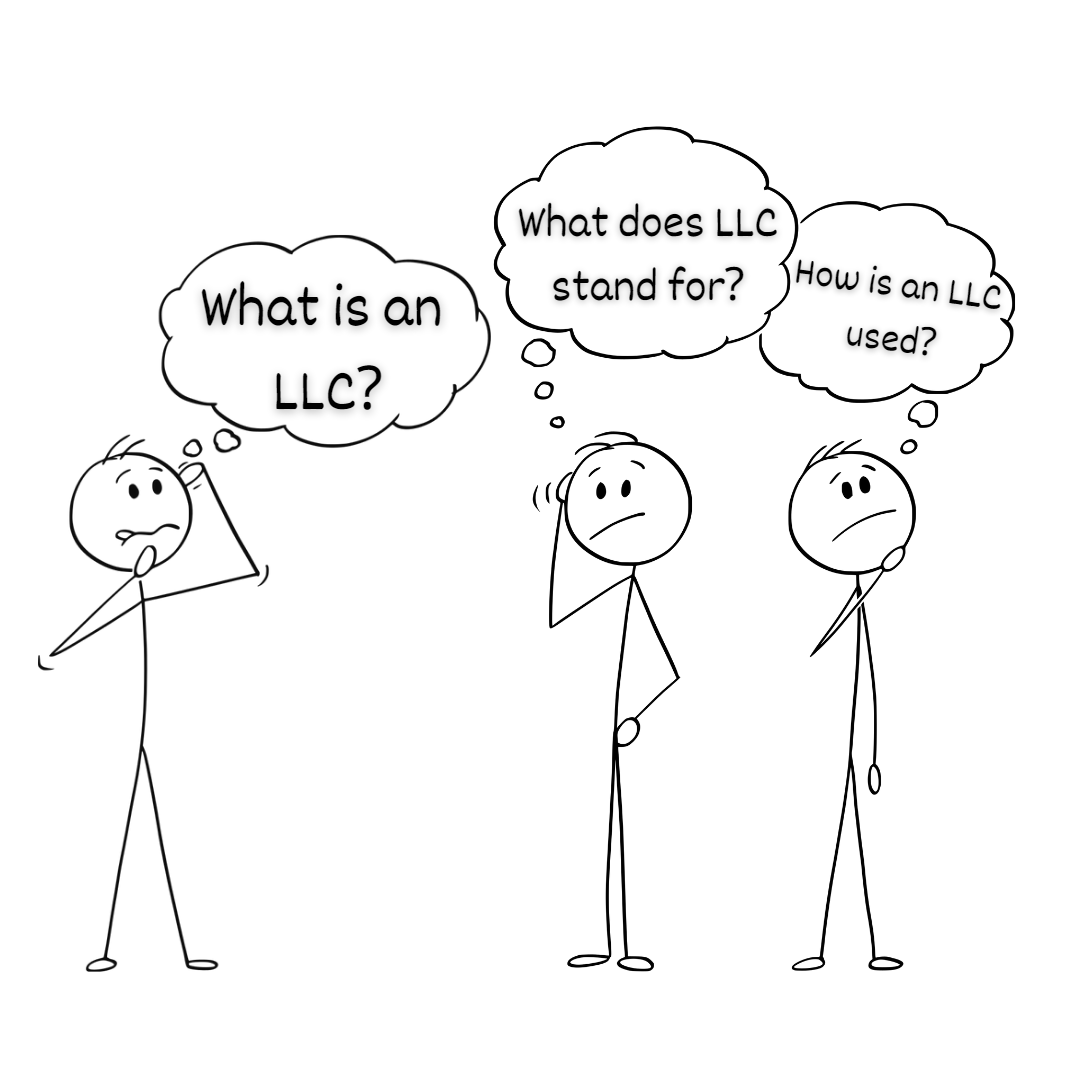What is an LLC and How Does It Work?
What is an LLC?

An LLC stands for Limited Liability Company.
An LLC also offers flexibility in how you manage and run your business, making it a popular choice for small business owners.
It's a type of business structure that shields your assets like your home, car, and bank accounts if your company faces a lawsuit.
Who Owns an LLC? Meet the Members
The individuals who own an LLC are known as Members.
An LLC can have a single owner, referred to as a Single-Member LLC.
If two or more people own an LLC, it is referred to as a Multi-Member LLC.
The Articles of Organization form and a one-time payment must be submitted to your state's Secretary of State or a similar government body to start an LLC.
Need to save time?
Consider hiring a professional to set up your LLC: Northwest Registered Agent offers LLC formation services starting at $39 plus the state fee.
(Find out why Northwest is the top choice for LLC formation)
Why Do People Choose to Form an LLC?
The main reason to form an LLC is to protect your assets.
Creating an LLC establishes a "barrier" between your business and your finances.
Your assets encompass all your possessions, such as your home, vehicles, bank accounts, investment properties, boats, jewelry, and more.
A creditor cannot target your assets
If your LLC faces a lawsuit, creditors can only pursue the assets of the LLC to cover its business debts and liabilities.
Your assets remain protected and secure.
They are separate from the business.
Without the protection of an LLC, your assets could be at risk if your business is sued.
Using the Right LLC Terms
Here are two common errors people often make when discussing LLCs:
I want to form a Limited Liability Corporation.
You can’t form a Limited Liability Corporation because it doesn't exist. The correct term is Limited Liability Company (LLC).
"I'm going to set up an LLC for myself"
This is incorrect. you can't LLC yourself
What you can do is form an LLC for your business. An LLC is a separate entity and distinct from you.
You set up the LLC and then take ownership and manage it.
Understanding these terms helps you discuss your business accurately and professionally.
Which is better: an LLC or a Corporation?
Many people wonder whether they should set up an LLC or a Corporation.
Here are the key differences:
- LLCs don't need a board of directors, but Corporations do.
- LLCs don't have to keep records of all their meetings; Corporations do.
- LLCs avoid double taxation; Corporations face it.
- LLCs can distribute profits flexibly; Corporations have stricter rules.
To put it simply, LLCs are common with business owners, entrepreneurs, and real estate speculators due to their flexibility and simplicity of usage.
Setting Up an LLC is Budget-Friendly
You'll pay a one-time filing fee to establish your LLC.
The formation fee for other business entities, like a corporation, is typically higher than this one.
The cost of losing your assets far outweighs the expense of setting up your LLC.
The peace of mind that comes with knowing your assets are properly safeguarded outweighs any additional filing expenses in your state.
LLCs are low maintenance
After setting up your LLC, you have only a few ongoing tasks to keep it active.
The main task is to file an Annual Report with the state.
✎ Note:
Not all states require Annual Reports.
The second task is to handle your state and local taxes.
Aside from these, you'll only need to file a simple form if you change your address.
Overall, maintaining an LLC is straightforward.
Exclusive Offer!
Hire a Northwest Registered Agent to form your LLC for just $39 plus the state fee and receive a free year of Registered Agent service.
(Why is Northwest the best? Read our Northwest Registered Agent review)
An LLC Can Manage Multiple Businesses
One LLC can be used for several businesses or multiple LLCs might be established for distinct companies.
How do I form an LLC?
- Choose a name for your LLC.
- Once your articles of organization, certificate of formation, or certificate of organization are completed, they should be sent to the secretary of state for filing. Please ensure the necessary state filing fee is included in your application, whether submitted online or by mail.
- After you've submitted your paperwork, you’ll need to wait a few business days for your LLC to be approved.
This covers the basics of forming an LLC. There are additional steps, like creating an Operating Agreement, obtaining a Federal Tax ID Number (EIN), and filing Annual Reports.
If you're ready to move forward, choose the state where you want to set up your LLC: